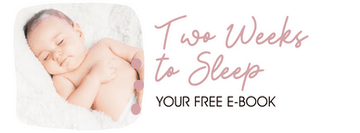
OVER & UNDER TIREDNESS: your sleep enemies!
Over tiredness is famous. Everyone knows about it and everyone wants to avoid it with their baby (or toddler!). So much so, that some of us then venture into the territory of UNDER tiredness, the far less famous cousin of over tiredness. Devastatingly, somehow, we still end up with a baby who is impossible to settle or who only sleeps in short stints.
So, how do we avoid both of these sleep enemies simultaneously? Read on to find out!
In this article:
- How to tell if your baby is overtired
- How to tell is your baby is undertired
- How to avoid BOTH over and under tiredness
- Tips for settling an overtired or undertired baby
Feeling confused about your baby's sleep needs?
Let our sleep experts help you every step of the way. Together we can solve your little one's sleep challenges
Choose your Sleep Solution
How to tell if your baby is overtired
Babies have a very sensitive circadian rhythm. The younger the baby, the less awake time they can handle before their system sort of goes into overload and they need to have a sleep so that their overactive brain has a chance to process and catch up. This is how they grow and learn.
It's incredible and a little bit terrifying how much of a difference even 5 minutes can make! The younger the baby, the more sensitive they are to being awake for too long between naps and this can result in over tiredness. But don't get me wrong - older babies and toddlers can definitely suffer from over tiredness too!
Some babies will give very clear tired signs and you'll have heaps of time to get them prepared for bed so that they're asleep before they get overtired. Other babies (like ALL of mine!) won't really show any tired signs until it's too late. Some babies will also show tired signs quite early on, before they're actually ready for bed (tricksters!).
If a baby or toddler is overtired, this is what it can look like:
- crying and difficult to calm down
- resisting settling
- napping for short periods/catnapping
- waking 45 minutes after bedtime at night
- waking a lot in the night
- waking early morning
- older babies can seem hyperactive or like they have a second wind
- tantrums in toddlers
What is actually happening in your child's body is a build up of the stress hormone, cortisol. An overload of this has a similar effect to adrenaline or caffeine. This is why older babies and toddlers who are overtired can seem so WIDE awake - it's like they've just had a shot of coffee right before bedtime!
Cortisol also inhibits the production and release of another hormone, melatonin, which is the one we actually need in order to fall asleep and stay asleep.
The more overtired your baby is, the less likely they are to settle easily at naps and bedtime. If they're overtired at bedtime, they're also starting off the night on the back foot and you're pretty much guaranteed a have a bad night of restless sleep and possibly an early wake the next morning too.
So, just like I did, you think... "I'll do EVERYTHING I can to avoid this horrifying situation"! You whisk your baby off to bed an hour or so after they woke from their last nap, so they aren't staying awake too long and getting overtired. You then spend 45 minutes trying to get them to go to sleep, while they stare at you and smile! Or worse, while they cry and resist your attempts to settle them.
This, everyone, is under tiredness.
How to tell if your baby is undertired
Under tiredness can look very much like it's doppelganger, over tiredness. In our haste to ensure our babies don't get overtired and, therefore, become impossible to settle, we end up trying to put them to bed TOO soon when they aren't quite ready for sleep yet.
Say goodbye to sleepless nights.
Join over 800,000 families worldwide who are enjoying excellent sleep with our Sleep App, created by experts in the field of pediatric sleep.
Choose your Sleep Solution
Two personality types will appear here, the Alert Baby and the Sleepy Baby:
The Alert Baby will simply stare at you with wide open eyes the WHOLE TIME you are trying to get them to sleep. OR they might be crying and fighting you every step of the way. You'll be rocking, feeding, bouncing, singing (by this stage you might also be crying!), feeding again, rocking some more...
Like most parents, you'll assume your baby is overtired. Why else wouldn't they be going to sleep? Eventually your wee one will doze off, but then in a few hours time you'll have to do it all over again to get them to sleep for their next nap.
The thing is, in this case your little one actually wasn't tired enough to go to sleep in the first place and was resisting all settling attempts as a result. By the time you'd gotten them to sleep, it would have been almost 2 hours since they woke from their last nap and if you'd tried to put them down at THAT point, settling them to sleep would have been much quicker and easier.
The Sleepy Baby will go to sleep if you do anything to actively settle them. Easily. They'll probably fall asleep feeding or while you're winding them. Except then they'll then wake 20/30/45 minutes later when you will have JUST made a sandwich and a cup of tea.
In this case, your baby was easy to settle because rocking is nice and calming BUT they weren't tired enough to have a longer sleep. This is simply because they didn't have enough awake time before their nap.
Across the space of a day, an undertired baby will end up either catnapping in short bursts, causing them to become overtired by bedtime, OR they will nap well throughout the day but then be extremely difficult to get to bed at night because they are undertired and need more awake time.
An undertired baby generally looks like this:
- crying while you try to settle them to sleep
- resisting settling
- napping for short periods/catnapping
- waking a lot at night
- waking in the night and wanting to stay awake for hours on end
- waking early morning
- older babies will really protest at nap/bed time
- toddlers will play or get out of bed constantly or be naughty
VERY similar behaviour to over tiredness, right? Which is why it can be SO tricky to find the right the balance.
How to avoid BOTH over and under tiredness
Both over and undertiredness can lead to poor napping, disrupted overnight sleep and early morning waking. This can mean a grumpy baby and frustrated parents.
So how do we avoid both of these sleep enemies? The answer is quite simple really… by making sure your little one’s awake times are appropriate for their age so that they will be perfectly ready for sleep at naps and bedtime.
Too easy, right? Well, actually, it can be quite tricky to figure out the perfect amount of awake time for your baby and toddler since their sleep needs are constantly changing and evolving.
Tips for settling and overtired or undertired baby
A baby who is overtired OR undertired is going to have a really hard time settling to sleep at naps and bedtime, but there are some things you can do to help. Here are our top tips for settling your overtired or undertired baby..
Let's get your little one's sleep sorted ASAP!Our award-winning Sleep App will solve your baby's sleep challenges in no time.
Choose your Sleep Solution
Work on their naps first.
Having age-appropriate awake times and nap lengths is by far the easiest way to avoid both under and over tiredness so we would recommend focusing on your little one’s naps first before tackling their overnight sleep. Having a consistent nap routine also makes it a lot easier to identify when your baby's sleep needs change.
Make sure their awake times are age-appropriate.
A small tweak to your baby or toddler’s awake times can make a HUGE difference when it comes to their settling and sleep. If you are working on self-settling with an older baby or toddler, those awake times become even more important because if your little one is under or overtired, it’s going to be really difficult for them to self-settle.
Foster positive sleep habits.
Aim to have your baby do at least one nap each day in their own bed so that they can start to learn that their bed is where they sleep, rather than on you or in a pram/stroller etc. The more your little one gets used to going to sleep in their own bed, the easier it will be for them to eventually self-settle to sleep there too.
Create a relaxing bedtime routine.
We recommend having a short wind-down routine before each nap, so your little one is heading to sleep nice and relaxed. For example: a nappy/diaper change, cuddle, put your baby into their swaddle or sleeping bag and say a sleep phrase such as "it's sleepy time now". These steps, replicated in the same order each nap time, will act as a really strong cue to your baby that it is time for sleep.
For bedtime in the evening you might want to have a slightly longer routine to really help your baby wind down from their day. Often babies and toddlers can have a build-up of over tiredness as the day progresses though, so make sure their bedtime routine isn’t too stimulating or overly drawn-out.
If your baby has exceeded their maximum awake time, settle them to sleep however you can.
This means feeding, rocking or cuddling to sleep, letting them nap on you, getting the nap done in a baby carrier or out and about in the pram/stroller or car - WHATEVER works! Once your baby or toddler ventures into over tiredness territory, it’s important to try to get them to sleep as quickly as you can.
Let's get your little one's sleep sorted ASAP!Our award-winning Sleep App will solve your baby's sleep challenges in no time.
Choose your Sleep Solution
____________
Bibliography
PARENTING SCIENCE. (2014). Baby sleep requirements: How much sleep do babies really need? [online] Available at: http://parentingscience.com/baby-sleep-requirements/ [Accessed 4 Mar. 2022].
PARENTING SCIENCE. (2018). What’s normal? An evidence-based baby sleep chart. [online] Available at: http://parentingscience.com/baby-sleep-chart/ [Accessed 4 Mar. 2022].
PARENTING SCIENCE. (2020). Baby sleep deprivation: How to tell if your baby isn’t sleeping enough. [online] Available at: http://parentingscience.com/baby-sleep-deprivation/ [Accessed 4 Mar. 2022].
Tham, E., Schneider, N. and Broekman, B. (2017). Infant sleep and its relation with cognition and growth: a narrative review. Nature and Science of Sleep, [online] Volume 9, pp.135–149. Available at: https://www.ncbi.nlm.nih.gov/pmc/articles/PMC5440010/ [Accessed 4 Mar. 2022].
_____________

Receive product and services updates, promotional offers and other marketing communications based.





